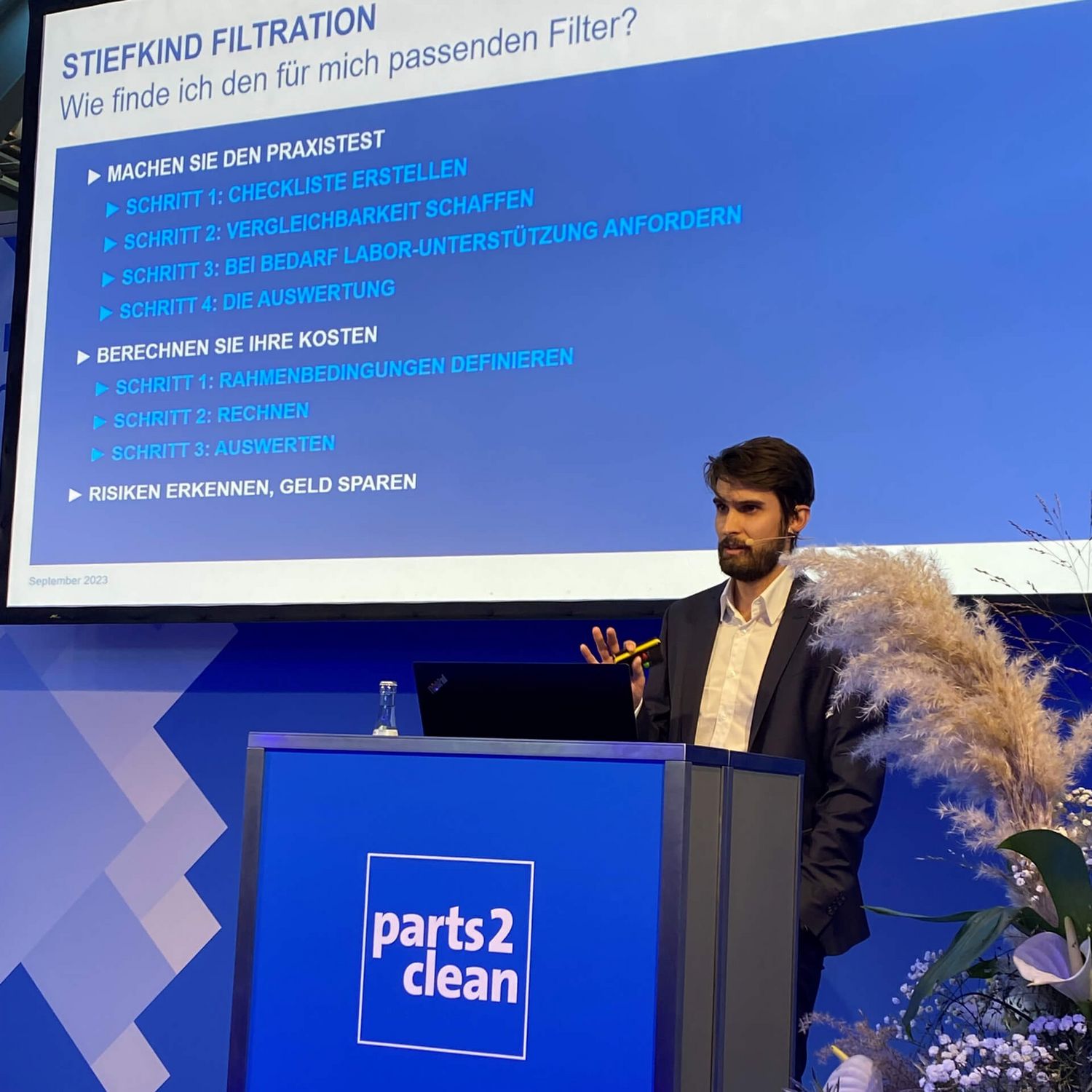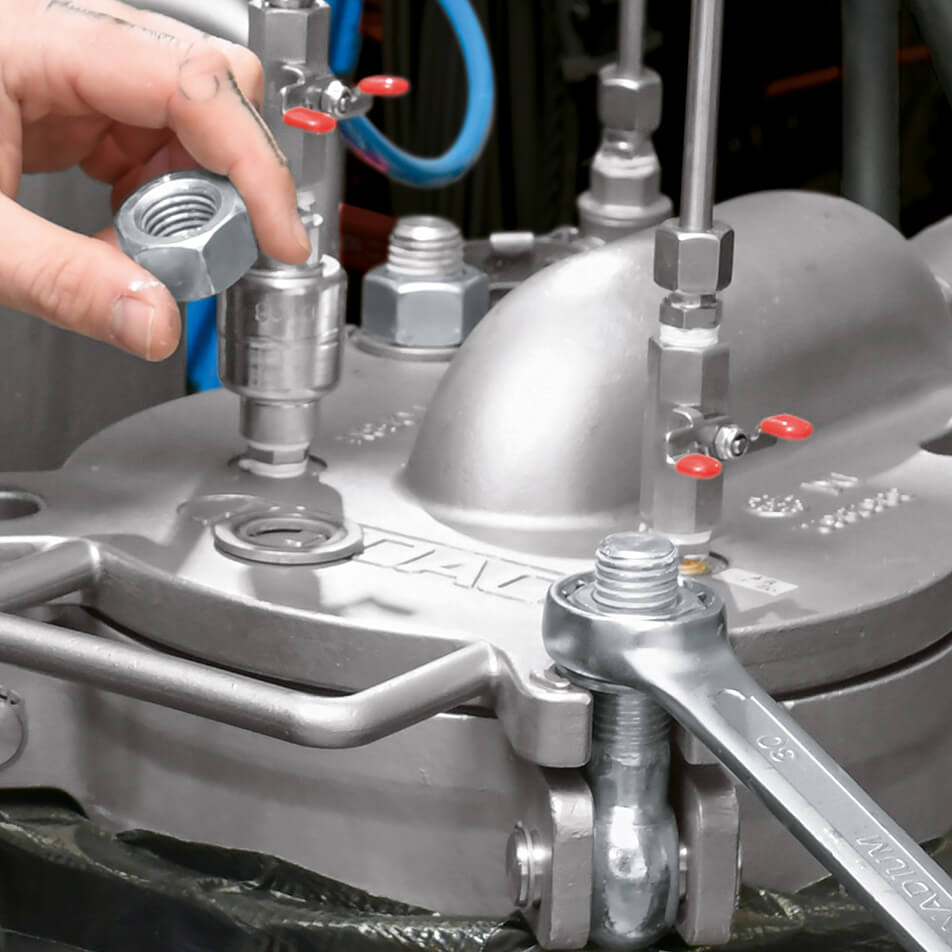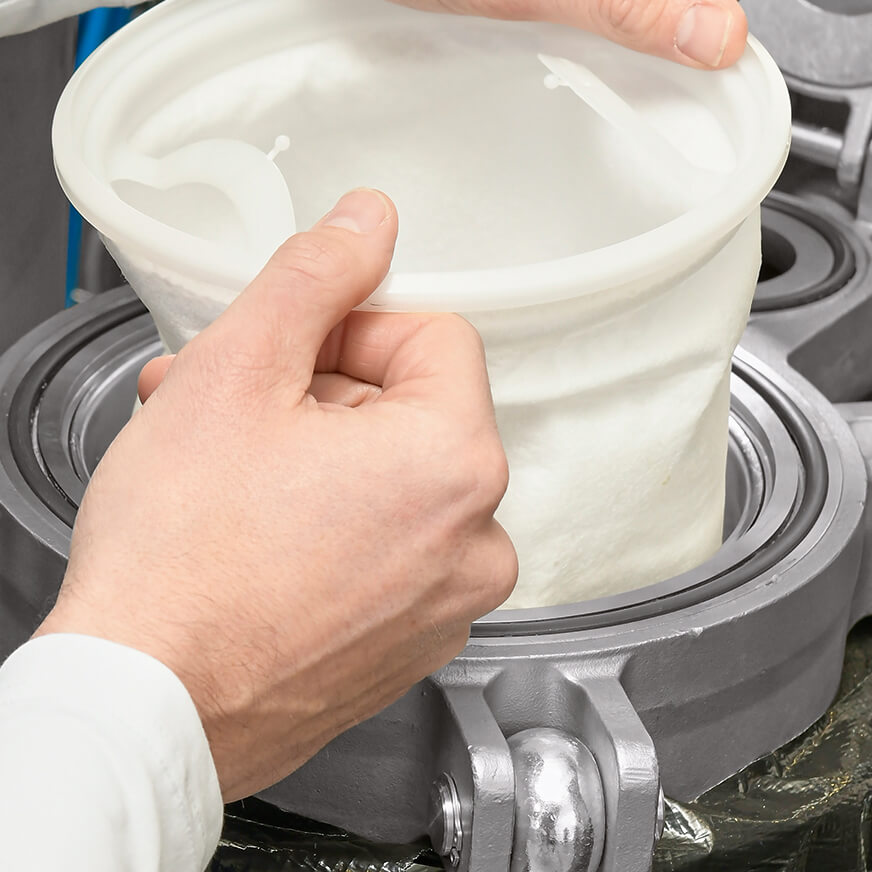In a cleaning system, the filter has an impact on the service life of the baths (i.e. on how long a cleaning fluid can be used) and thus on the cleanliness of the components. In addition, it is crucial how long the filter can be used before it has to be changed. Assuming that a high-quality filter costs more than 100 euros and lasts on average about three to four days, the total operating costs are quite considerable and it is worth taking a closer look at the subject.
At Parts2Clean, Martin Seger, an engineer at Silberhorn, gave users a guide on how to determine the right procedure for themselves. To do this, he first recommended a comprehensive practical test. The second step is the individual cost calculation.
The practical test
This is about the components: In what condition do they arrive at the cleaning machine? And in what condition should they leave it? What residual dirt do you allow? For this purpose, it is best for users to define a practical sample or standard component. If you are not able to carry out precise analyses yourself, you can get laboratory support from professionals. This is possible at Silberhorn, for example.
The defined sample components are now cleaned in the same programme but with different filters. The results are documented exactly.
The calculation
The next step is a precise calculation. This includes the results of the practical test - but also factors such as depreciation, filter types, service life of the cleaning fluids, costs for maintenance (filter change), machine availability and more. Another crucial question is: Does your system have a switch-over filter? Can the system continue to operate during a filter change or do you have to accept a standstill?
The result
In Martin Seger's lecture, the result was quite clear: it depends. It depends on the requirements of the user; it depends on who carries out the filter change and it depends on whether a spin-on filter is available. There is no one-size-fits-all answer - which is precisely why it is worth taking a closer look. Every company would do well to check its own requirements and choose the way that suits it best. Even if it is a greater effort: in the end, dealing with the subject of filtration is worthwhile, because the correct approach can save a lot of money.
Important tips
Martin Seger gave his audience three more important tips:
- Take enough time for the analysis and then decide on the type of filter that is right for YOU.
- Make sure that your filter system always functions faultlessly and reliably
- Train your staff regularly and comprehensively
Martin Seger has been working at Silberhorn Maschinenbau for several years. After completing his studies in mechanical engineering, he is now primarily responsible in the R&D department for planning experiments and carrying out and evaluating them. Among other things, he dealt with the question of what role the choice of filter has for the user. Besides the focus on research, he takes care of various designs and technical documentation.
Would you like to learn more? Do you need support with your filter test? We are happy to help you.
Sebastian Weizer
Head of Sales
Phone: +49 (0) 9492 9425-4342
vertrieb(at)maschinenbau-silberhorn.de




